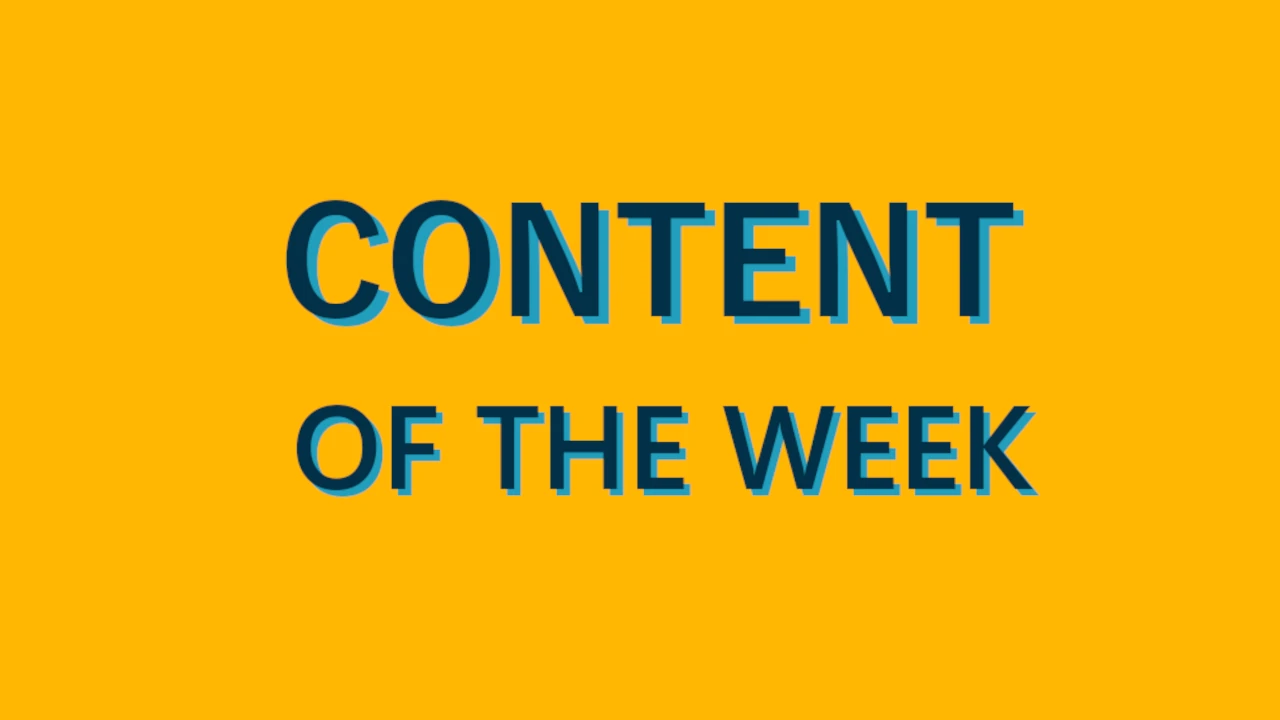Educators are precious.
And if you have educators on staff, then you’re sitting on a goldmine.
These people may not even consider themselves educators. They could be curators, event coordinators, front of house, librarians and archivists. But if they can condense something into an understandable package that educates without patronising and entertains as much as it informs, then that in my book is an educator.
And the prime example I’m using for this week’s Content of the Week is the University of Oxford’s Mathematics department.
I’ve seen their videos pop up in my feed before, but it was only after the RA’s Ed Bankes messaged me about them that I realised just how popular they and their videos actually are, with some getting nearly 200k Likes.
Their videos are usually either clips from recorded lectures or purpose-made videos of mathemeticians explaining or demonstrating mathematics. There’s a kind of shabby quality to them that is very Oxford, like they’ve just caught lecturers mid-scoop in the staff room’s communal Nescafe jar and asked them to explain an equation.
While that’s part of the charm, it wouldn’t work if we didn’t trust that these are some of the smartest people in the country, backed up by a prestiguous university name. We can’t all rely on the prestige of the University of Oxford, but we can rely on the high public trust in museums.
Galleries, libraries, archives and museums – even if they’re not part of a university – are full of people like this. They’re the people beavering away at the collections, visting researchers, or those running tours and activity sessions. They know how to capture an audience and explain something in ways everyone understands because they’ve tried and tested their methods day-in-day-out on the public themselves.
So you don’t need a big fancy video, meticulously scripted, produced and edited. Just get someone interesting who knows what they’re talking about and who’s used to talking to normal people, and film them.

What else I’m thinking about
My experience with Twitter has been like a slowly boiled frog. It wasn’t perfect to begin with, and then as moderation ceased to exist and far-right accounts were reinstated, there were enough people I liked still posting that I could ignore the trolls and focus on what I liked.
My decision to leave Twitter is because it’s gone to shit in the way that Hemingway supposedly described going bankrupt – “Gradually, and then suddenly”.
We all know or knew Twitter was gradually going to shit, but the ‘suddenly’ is different for each of us. The weaponisation of moderation and amplification through verification that helped swing the USA election was a turning point for me. For others it could be Musk’s poll of whether to overthrow the British government, cheerleading neo-nazis or endorsing Nazi talking points. Take your pick.
As a personal user I can make my own decision to ditch Twitter and embrace Bluesky (until it inevitably goes the same way). But organisations have to seriously ask themselves whether abandoning platforms also means abandoning the fight for their own values, ceding ground to those who spread misinformation and weaponise heritage.
There’s an argument that leaving Twitter is fine as it’s not representative in the first place, and that in any case ‘normal’ people are increasingly leaving the platform too. But as Meta does away with fact checkers – first in the USA, soon everywhere else probably – we may face the same quandary on the largest social media platforms in the world, not just a fairly niche microblogging site.
You may think that you can avoid making a choice so long as you don’t post anything controversial, but the Overton window is shifting. If your organisation is an LGBTQ+ ally then you will be challenged on the TQ+, and many already have. And when historical facts such as Hitler not being a communist become fair game for online debate, the National Trust’s experience with anti-woke campaigners could just be the starting pistol.
Anyway, what I’m saying is that our organisational use of social media may rapidly become a political act rather than as a neutral marketing tool. Be prepared.
Reach out
Interested in what I do and how I can help? Chatting to me is free, and I can work to your budget :)
